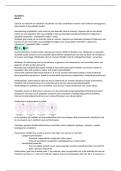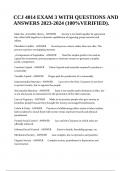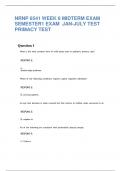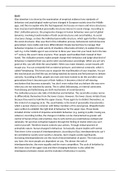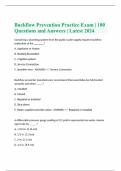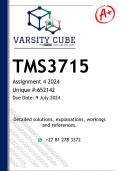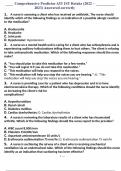College aantekeningen
PHIL1700 - Quiz 1 - Study Guide - Summary of Readings and Lectures Classes 1-4
- Vak
- Instelling
This document is a very helpful study guide for PHIL1700, the Philosophy of love and sex for test #1 and even for exam review. It contains summaries of required readings and of Professor Sacha Ghandeharian's lectures 1-4. I've also included very helpful links to short videos that helped me to gain ...
[Meer zien]




